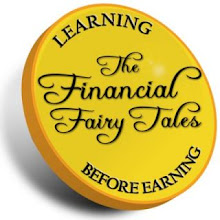We need two school systems
Education in America could use a big dose of innovation. How about one public school system for employees, and another for entrepreneurs?
By Robert Kiyosaki
In the summer of 1932, presidential candidate Franklin Delano Roosevelt promised, “I pledge you, I pledge myself, to a new deal for the American people.”
Today, it is time not for a “New Deal,” but a “New Mission.”
America’s schools need to take a page from the businesses that have been created by entrepreneurs over the past decades. Henry Ford, Bill Gates, Steve Jobs, Sergey Brin and Larry Page have all given us the road map, but the path toward entrepreneurship is often the road less traveled America’s schools.
The U.S. unemployment rate is currently 9.7% in what many call a “jobless recovery.” So what should we do? The problem and the solution can be found in America’s educational system and its current mantra: “Go to school and get good grades, so you can get a good high-paying job.” In simpler terms that means, “Go to school to become a good employee.” But there are too many employees, which is why we have an unemployment problem. Today, kids just out of school aren’t finding jobs. At the same time, many of their parents are going back to school for retraining. But they’re not finding jobs, either.
The idea of a high-paying job for life is truly an American dream — but no longer a reality. With low-priced labor and lower-priced, higher-performance technology, high-paying American jobs will be disappearing at greater speed as they move overseas.
Two-track system
America’s education system needs an injection of innovation — which is just what entrepreneurs do. We need two different public school programs: one for employees and one for entrepreneurs.
The way to train entrepreneurs is almost exactly the opposite of the methods used to train employees. Another common thread about Ford, Gates and Jobs is that they all dropped out of school. This is not to say education is not important, but training entrepreneurs is different from training people to be employees. It is much like the difference between traditional education and the military academy model.
Many of the lessons I drew upon to write my book, Rich Dad, come from the U.S. military academy system.
In 1965, I left a sleepy sugar plantation town of Hilo, Hawaii, and journeyed to Kings Point, N.Y., to attend the U.S. Merchant Marine Academy. With four years at the academy and six years as a Marine Corps pilot, including two trips to Vietnam, I gained many of the real-life skills and character traits I count on today as an entrepreneur.
Success in the military is a great bellwether signaling achievement in business. For example, the Israeli Defense Forces are a breeding ground for education and entrepreneurs, where many serve in units specializing in military technology. At the beginning of 2009, the 63 Israeli companies listed on the Nasdaq, many led by former IDF members, outnumbered those of any other foreign country, according to the book Start-up Nation by Dan Senor and Saul Singer. There are simple lessons here for America’s gridlocked education system.
If I were running America’s schools system, I would create the U.S. Business Academy for Entrepreneurs, modeled after our federal military academies. Admissions would be via congressional appointment along with nominations from community business leaders. The entrance exams would be rigorous; the curriculum would be very different from traditional colleges.
On first day at any of the five federal military academies, each student is required to memorize the academy’s mission. In the military, mission is more important than life. After leaving the Marine Corps and starting my own business, I found many executives with MBA degrees focused only on money. Money was their only mission. If they could cut expenses by firing employees, so be it. This was unconscionable at the academy and the Marine Corps. As military officers, our mission was to serve our country and bring our troops home alive. It was drummed into our souls that our mission was more important than our lives.
The mission of the U.S. Academy for Entrepreneurs would be to create sustainable, well-paying jobs for employees by aggressive growth of the business. Too many executives are trained to grow the business through mergers and acquisitions, using massive amounts of debt. Though this might make shareholders happy, in most cases it rips the soul out of the business, loading it with debt while putting the jobs of employees at risk.
Creating real jobs
If corporate executives cannot grow a business organically, they will often repurchase their shares to make it look as if the share price is going up — again to keep shareholders happy and the CEO employed. This is business manipulation, and not the true mission of a sustainable business. The lesson learned is, a loyal employee is not as important as money.
The U.S. Business Academy for Entrepreneurs would have only real entrepreneurs as teachers. I would ask that they work for only $1 a year (think of the great entrepreneurial CEOs who have turned around their businesses doing the same). You see, if they were real entrepreneurs, they would not need the money. They would teach for the same reason the students are there: the mission to create entrepreneurs who create sustainable jobs for the country.
Whether you agree with me or not, I hope it’s clear that we need to create more entrepreneurs — since only entrepreneurs can create real jobs.
We need to pledge ourselves to this New Mission: job creation by those who are true job creators.
Robert Kiyosaki is an educational entrepreneur, founder of the financial education-based Rich Dad Co. and author of best-sellers Conspiracy of the Rich and Rich Dad Poor Dad.


